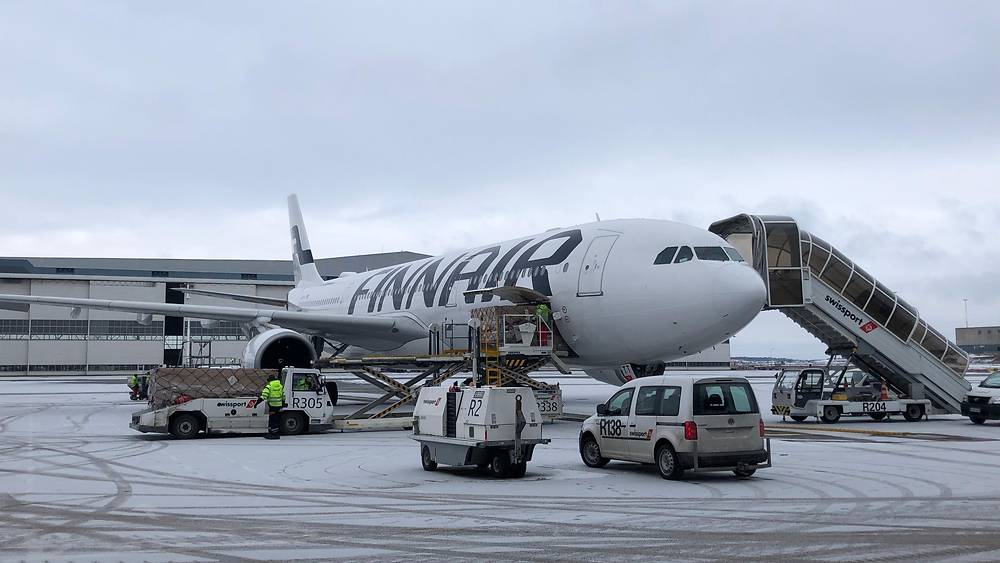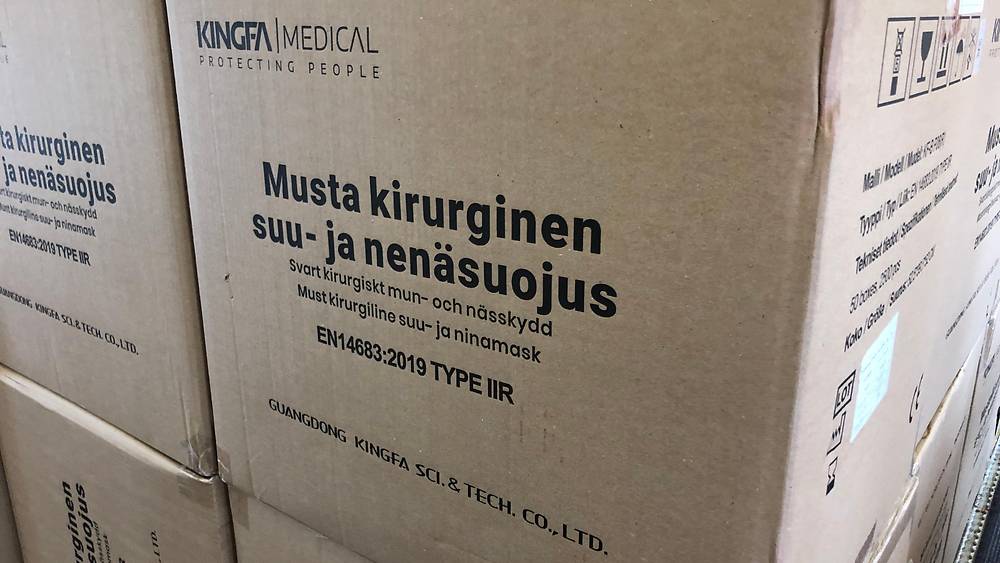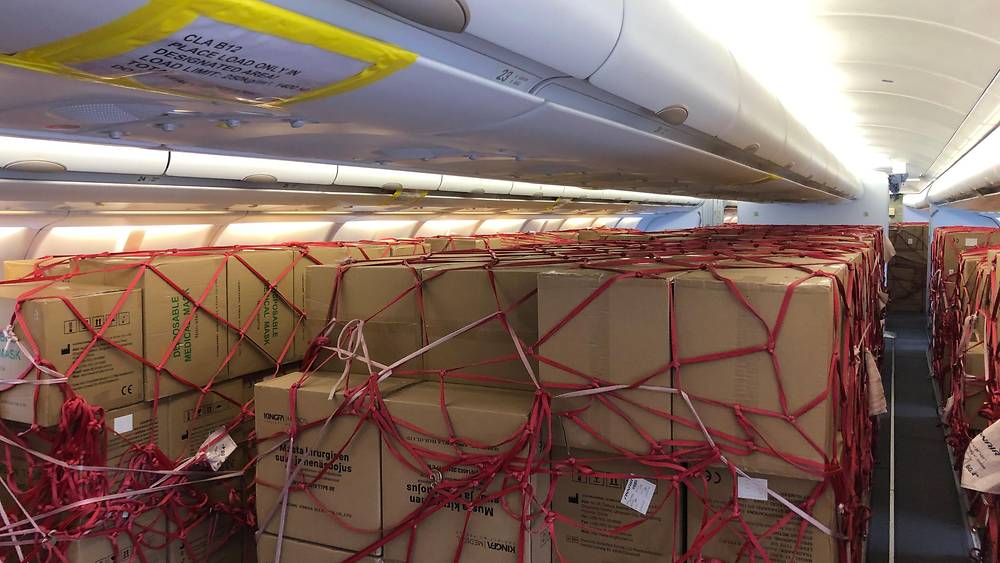Cargo news


SOK brought 100 million facemasks to Finland – reliability and speed were Finnair Cargo’s strengths
Last spring, when the world suddenly changed due to coronavirus, Finland along with other countries restricted normal free movement, in the hopes of stopping the spreading of the virus. New restrictions paralysed air traffic almost completely, causing businesses new types of logistical challenges. This was the initial impetus for the charter cooperation between Finnair Cargo and S-Group, and during the past year, SOK has flown approximately 100 million facemasks in 20 charter flights to Finland.
S-Group is Finland’s biggest retailer providing jobs to 18,000 personnel within the field of trade and restaurant business. Jari Simolin, SVP Category Management & Procurement at SOK Supermarkets, tells how charter flights have helped to cope with the logistical challenges during the times of the pandemic.
Jari Simolin, SVP Category Management & Procurement at SOK Supermarkets, paid close attention to trying to understand which direction the epidemic would globally evolve in the spring. The heated conversation about the facemasks was ongoing, and while many countries had made using masks mandatory, Finland still hesitated. He was worried about the safety of his employees that, despite of the coronavirus, continued serving customers and faced hundreds of people throughout the workday. It was uncertain, whether a recommendation or a compulsion to use facemasks would take place, which would then, without a doubt, result in massive demand in Finland. At the same time, it was difficult to be able to find reliable facemask producers because lots of untrustworthy providers or masks with falsified information were traveling on the market.
”When I first called Finnair Cargo, it was a bit uncertain, whether Finnair would even be able to serve S-Group in this state of emergency. Still, within half an hour, I found out SOK is classified as an emergency supply operator and were discussing what kind of plane we would need”, Jari states.
Masks that would fulfil all the requirements were found from Canton, China. On 20 April 2020, took place the very first SOK charter flight from Guangzhou to Helsinki, transporting the first 5 million facemasks. Guangzhou had been in Finnair’s network since 2017, but because of COVID-19 all flights to China had been suspended one month earlier. Pasi Nopanen, the sales director of Finnair Cargo Asia tells:
”Charter agreements are often made directly with shippers, so comprehensive coordination and flight preparations need to be emphasized by us. In any case, a professional forwarding agent is needed in both ends to provide the needed local services: pick-ups, distributions, cargo preparation, customs clearance, etc. With SOK this work was done within a few days, thanks to good cooperation and communication. Special thanks go to SOK, their logistic partners and our teams in China and Finland.”
Jari Simolin tells that besides Finnair, they would have had other options to transport facemasks to Finland, but he chose Finnair Cargo mainly because of its safety, reliability and speed.
Black is in style at the moment in the facemask fashion.


”It would’ve been possible to get from Canton to Finland through Middle-East but with a critical product like this, each extra stop is a risk to lose the goods into wrong hands,” Jari reminds.
Speed is also an asset once the demand is at its highest. In practice, an aircraft that departs from China in the morning arrives to Helsinki Airport already in the afternoon because of the time difference. Finnair Cargo is able to handle the product as a quick delivery through the customs, and the masks can be in the store shelfs already within the same night.
”Transporting masks by train would take around five weeks. However, it’s good to remember that the demand of facemasks changes each week. No one could tell last spring or autumn, whether more masks would be needed in five weeks or would they be needed at all. Or would stores be left with large numbers of a product that was a very marginal produce before the start of the coronavirus pandemic,” Jari says. “Demand, of course, follows directly what the government rules.”
In May and June 2020, Finnair Cargo modified three A330 passenger planes to meet the needs of cargo transportation, so that cargo could also be transported in the cabin area. In these aircraft, the cargo volume goes up to 230 cubic meters per aircraft. After the calm summer, the Finnish Government ruled an official facemask recommendation, after which SOK has flown masks for sale and for its personnel in the modified A330s each month.
Facemasks can be transported also in the cabin in the modified A330 aircraft. Approximately 5 million masks fit in one aircraft.


”The best thing about working together has been flexibility, customer service and reliability,” Jari notes. “Finnair Cargo tells exactly what’s possible and doesn’t promise anything it cannot deliver. I have never needed to worry about what happens to the masks. The managers of Finnair’s charter sales Ilkka Kallonen and Pasi Nopanen have always made sure that things go as agreed. I once got a call from Ilkka on a Sunday that they are still waiting for the goods to be loaded in Guangzhou and the pilots are already sitting in the plane. We got to stretch the schedule a bit so that the plane waited for the cargo at the airport taking off a little bit late but still getting the goods to Finland within the same day.”
The small number of passenger flights has resulted a shortage of air cargo capacity, which has brought charter flying as one of the new options in the logistical toolbox. Jari admits that the smooth cooperation with Finnair Cargo has also generated some new ideas, in which charter flights could be utilized even more in the future, but his ideas remain a secret still.